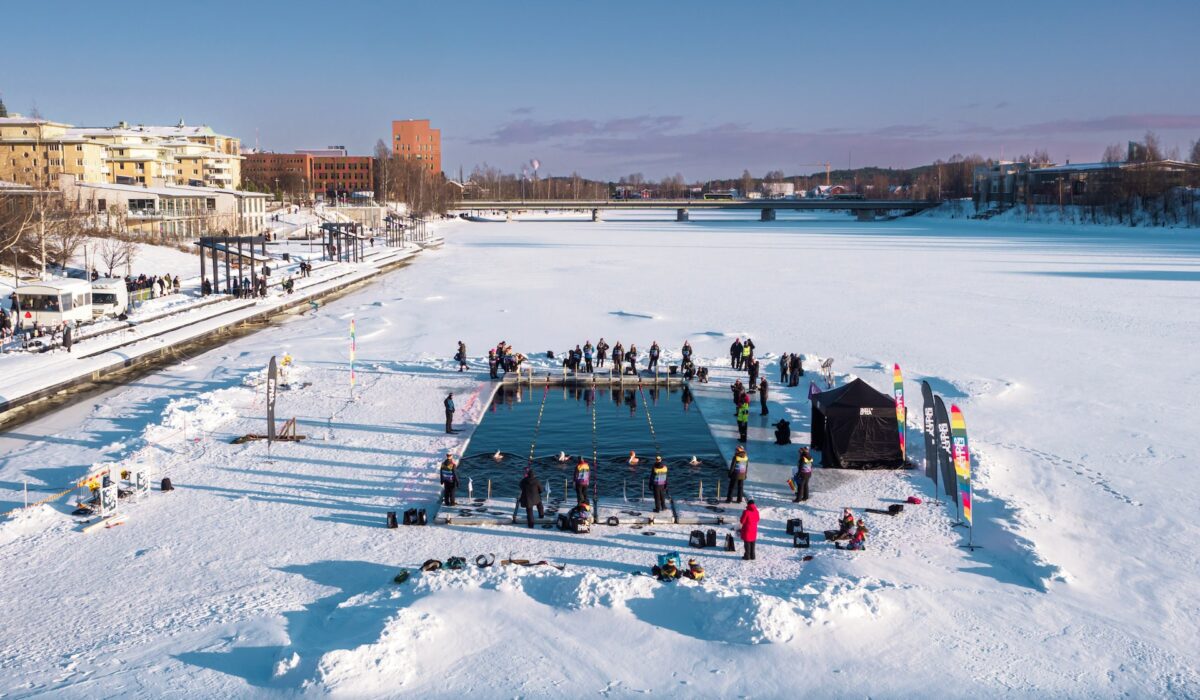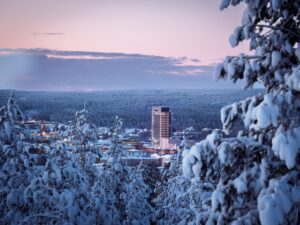
Bringing people to the Swedish Arctic
Arctic Sweden is a vast territory rich in raw materials, renewable energy, and green innovation companies. What they also have is high outmigration rates, with primarily young people leaving. Today, the lack of people is the problem many businesses across the Arctic region are struggling with. Northern Sweden is one of the few examples where major economic players slowed down this negative trend by uniting forces and acting holistically.
”It all started when Facebook located their first data center outside of the U.S. in Northern Sweden, which kickstarted the green industrial revolution based on access to fossil-free and competitively priced energy in the region. Suddenly the demand for a new workforce was growing. We historically thought it was primarily white-collar, highly educated people we would need, but we now see that we need all kinds of qualifications. It is not just about skills; we need a net influx of people to the whole region in northern Sweden. There are many numbers thrown around, but we need at least 100.000 people in the coming 15 years,” explains Ludwig Rosendal, COO of MindDig.
The company MindDig is based in Luleå, Sweden, and calls itself a talent attraction & retention platform.
“Back in 2020, some of the biggest companies in the region gathered and concluded that this problem with attracting people to the north will not be solved just by the public sector alone. The companies had to collaborate to overcome what they were facing. We have fewer people working in health care or kindergarten now because jobs in the private sector can offer higher wages and a better work-life balance.” says Ludwig Rosendal.
The companies were traditional large ones, like the 130-year-old LKAB iron mine in Kiruna or Vattenfall, an electricity company with operations across all of Sweden, and newcomers like H2 Green Steel, aiming to produce fossil-free steel in Boden, or Northvolt, a large battery factory in Skellefteå. What they all have in common is that they use the plentiful renewable energy in the region and are decarbonising their entire value chains, forming a net zero industrial cluster with a global impact.
Yet, they all struggle to attract new talented professionals and keep them. Too many people that move to the region leave within a year.
“Bringing people to the North is only half the battle, keeping them is the greater challenge,” says Ludwig Rosendal.

Mind the talent
“Companies in the past used to hunt specifically for senior executives or specialists. Now they hunt for everyone,” explains Ludwig Rosendal.
“The idea of MindDig is simple. High-profile companies like Northvolt receive thousands of job applications a month, but they can only hire a small percentage of those. But now we know that these people are interested in moving north to work, so we share the CVs of these talents in our database with other employers in the region. It’s called talent recirculation,” he adds.
“We need to brand and market the region to attract people to work here. We cannot just sell the northern lights. We need to show the many career opportunities here and the benefits of work-life balance. You don’t have to commute every morning for two hours to go to work. So, we have to show the factory with the northern lights above.”

Attracting, receiving, and retaining talent
The solution to the demographic challenge comes in several stages. Companies need first to attract, then receive new workers and more importantly, retain them, making sure that people establish a life locally.
If a member of a family chooses to move north because of a unique career opportunity in the green transition, the partner might struggle to find another job locally and fully integrate.
“We can see that a significant proportion of people we manage to attract here from abroad leave within one year, and quite often it is because their partner is not able to get a job and integrate in society. Therefore, the local communities must be ready to hire international talent for jobs that Swedes were normally doing. It also means that the public sector should offer evening classes to learn Swedish rather than during work hours. We need to release the handbrake of policy barriers and make it more attractive to move north. We need to set up forums for expats for them to integrate properly because they want to meet local swedes. Northern Sweden cannot just brand itself for tourists, we must show that we have schools, football teams, restaurants, culture, and a vibrant and growing community here. We are not rural – we offer dynamic but relatively small cities, meaning short to no commuting time!” emphasises Ludwig Rosendal.
Photocredit: Skellefteå kommun, https://unsplash.com/@skellefteakommun